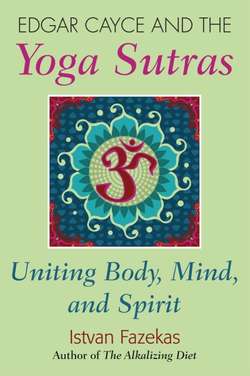Читать книгу Edgar Cayce and the Yoga Sutras - Istvan Fazekas - Страница 21
На сайте Литреса книга снята с продажи.
V. Aparigraha:
ОглавлениеWatch and be on your guard against avarice of any kind, for life does not consist in possessions, even when someone has more than he needs.
Jesus; Luke 12:15 [author’s paraphrase]
You bemoan not having what others have. You don’t know what it is to be free. The contrast of the happiness within your soul outbalances all the pleasure that you can get from your senses. So don’t spend too much time seeking and caring for possessions.
Paramahansa Yogananda10
Aparigrana means “nonavarice” and recommends keeping to a simple life. It is the old adage not to let your possessions possess you. This teaching is especially poignant in countries that have abundant material resources. This yama entreats us to “simplify, simplify, simplify,” in the words of Thoreau, keeping our material needs to a minimum and our spiritual connection at full depth.
Since the post-World War I era, America has been on a track of progressive, some might contend reckless, consumption. We are now seeing the various effects of our excessive appetites in social and environmental imbalances. Other countries, in an attempt to keep up with the Joneses, are mimicking this behavior and reaping the detriments. If aparigraha were to be applied personally and globally, these present imbalances could be soon rectified. It is a precept that needs implementation in the wealthiest countries. However, we should all start with ourselves first—wherever we live.
Do not gather . . . and store for yourselves treasures on earth, where moth and rust and worm consume and destroy, and where thieves break through and steal; But gather . . . and store for yourselves treasures in heaven [God consciousness], where neither moth nor rust nor worm consume and destroy, and where thieves do not break through and steal.
Matthew 6:19-20
